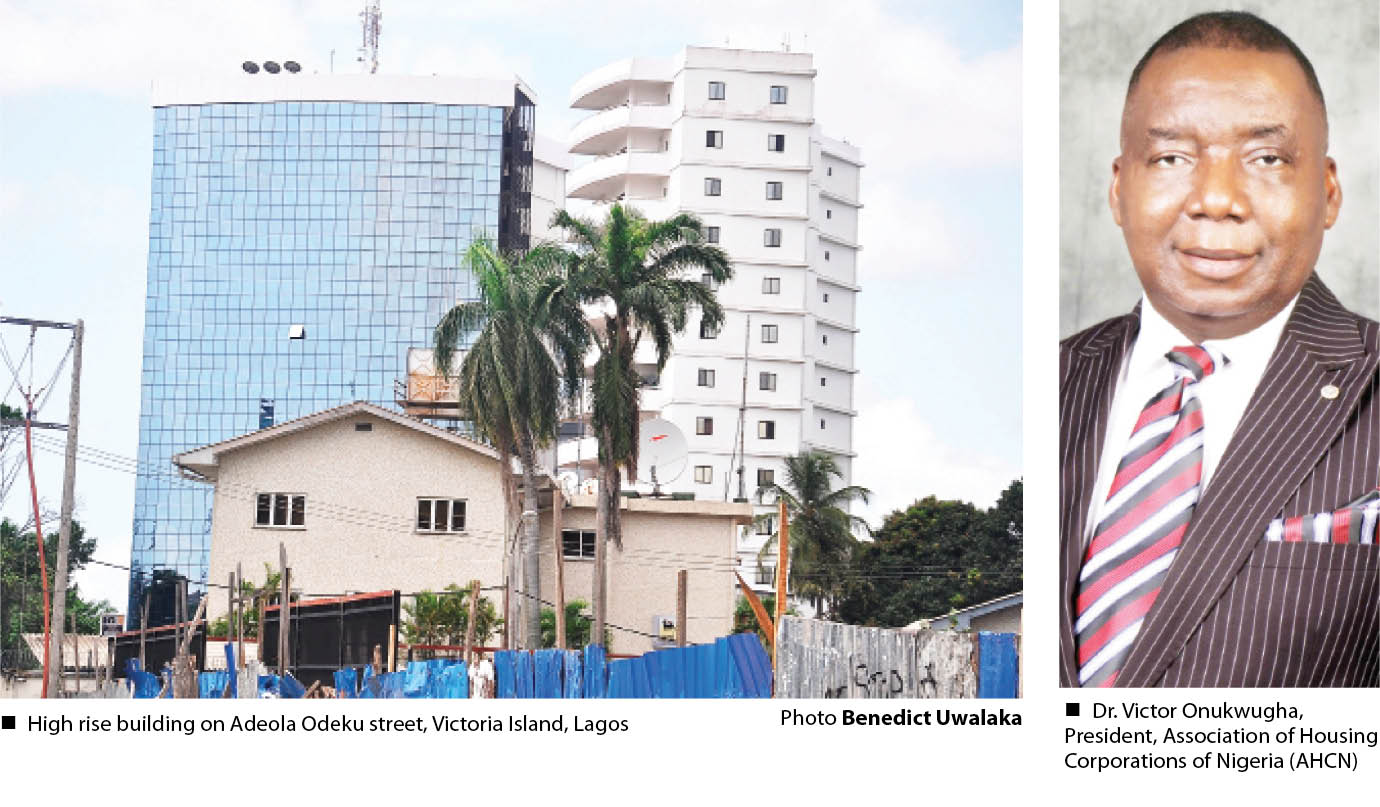There are mixed feelings among landlords and property owners over a recent call for a monthly rental system by the Minister of Works and Housing, Mr Babatunde Fashola, and Governor Babajide Sanwo-Olu of Lagos State.
The duo made the suggestion a week ago during the just-concluded 10th meeting of the National Council on Lands, Housing and Urban Development, held in Lagos.
They made the recommendation in view of the recent realities in the property sector where house rent has gone up beyond the reach of the average Nigerian.
For instance, in Lagos State, findings by Daily Trust indicate that an average two-bedroom flat within Ikeja and its environs costs between N700, 000 and N1.5m per annum. The development has pushed many people to the suburbs where they can get affordable housing, and sources said this is also pushing up the price of rent in the outskirts of the state.
Considering the high cost of rent in the Lagos metropolis, places like Akute, Alagbole Ajuwon, Ifo, Ibafo, Magboro, among other communities in Ogun State bordering Lagos are becoming even more expensive for the middle class and the low-income earners in Lagos.
An estate agent who spoke with our correspondent disclosed that for instance, a bedroom flat now costs around N250,000 at Akute unlike years ago when rental payment in the area cost around N150,000.
At the forum with the theme: “Housing Development as a Catalyst for Job Creation, Social Inclusion and Economic Development,” Fashola said the monthly rental system will go a long way in reducing the number of citizens who lack decent shelter and live on the edge.
“Our country would be a much better place when rent in advance for middle class and working families’ residential homes becomes rent payable at the end of the month. Asking someone to bring three years advanced rent of what he earns monthly in arrears is creating a huge mismatch.
“This is a source of inequality and we can do a lot to reduce it. The day our rent obligation moves closely or equals our income receipt, this place would be a fairer place,” he said.
Sanwo-Olu, on his part, said the state is already working on a monthly rental model. “In delivering decent shelters, we must care for both low-income and high-income earners because housing is such a basic human need for everyone.
“In Lagos, we operate a very robust Rent-to-Own programme of five per cent down payment and six per cent simple interest rate payable over a period of 10 years. We are working on another product, which is a purely rental system, where residents will pay monthly.
“This is to accommodate those who are not keen on home ownership and address current realities. In doing this, we believe that no one would be excluded from our intervention in this critical sector,” he said.
But there are mixed feelings over the workability of this system as the majority of landlords and property developers continue to demand annual payment. In fact, some of them make demands of a two-year rent advance.
A landlord who spoke with our correspondent under the condition of anonymity said, “The government cannot dictate to us how to collect our rent because they were not responsible in the first place for providing the house for us. We built these houses with our money. We pay for everything, provide water on our own and we also maintain these properties without any assistance from the government. How can they now ask us to collect monthly payment?
An estate agent in Ojodu, Mr Muili Taiwo, in a chat with our correspondent stated that they actually made the move some time ago but the landlords resisted it. According to him, the least some landlords would collect is a six-month payment.
He said, “I don’t know of any landlord that collects monthly rent here. I know virtually all landlords in major streets in Ojodu here and I can confirm that what they collect is annual rent. None of them charges monthly but very few collect six-month rent. Those of us who are estate agents actually suggested it but those landlords are not cooperating.
“What the governor and the minister said was merely advisory because I understand the position of the landlords as well because the government didn’t give them the money to build their houses. This can only happen in houses constructed by the government and not the properties owned by individuals who used their hard-earned money to build.”
However, another real estate expert, Mr Tunde Balogun, told Daily Trust that monthly rent payment is the best for landlords and property owners while agreeing with the suggestion of the minister and the governor.
Balogun, who is the Chief Executive Officer of RentSmallSmall, said if the monthly rental system is in place, the 10 percent agency fees would be removed and people would have access to decent houses without stress.
He explained that this is what the RentSmallSmall platform is set out to achieve, noting that landlords could get higher than what they are getting at the end of the year if they keyed into the monthly rental model.
“I have been to many places and lived outside the country for many years. I have never seen a country where people pay upfront on the first payment and pay agency and legal fees that actually make the price skyrocket because when you pay agency and legal fees of 10 per cent each and then the base rent, the money heightens.
“With RentSmallSmall, there are no agency and legal fees. What we do is to get the base rent from the landlord, we mark it up by a certain percentage which still makes sense at the end of the year, because by the time you add the agency and the legal fee to the base rent, and mark it up to the base rent, you will find out that RentSmallSmall still gives advantage”.

 Join Daily Trust WhatsApp Community For Quick Access To News and Happenings Around You.
Join Daily Trust WhatsApp Community For Quick Access To News and Happenings Around You.


